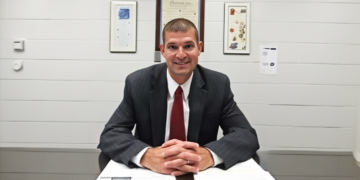I am submitting this testimony in strong support of HB 58, based on my personal experience as a resident in uncertified recovery housing at STEP Wellness Center, LLC in Portsmouth, Ohio. I am in recovery myself, and I know firsthand how critical safe, supportive housing is to rebuilding one’s life. I want to acknowledge the concerns raised by opponents of this bill, including potential financial and administrative burdens on operators, avoiding duplicative oversight, and the importance of local input through county boards. While these concerns are understandable, my lived experience shows that without enforceable statewide standards, residents remain unprotected and harm is very real.
Opponents argue that voluntary certification and county board oversight are sufficient. My experience at STEP Wellness proves this is not the case. The facility operated outside any certified framework. Residents had no enforceable protections, and complaints about unsafe conditions, staff misconduct, and mismanagement were ignored. Because I was not in a certified home, I did not have the protections I needed. Without mandatory certification, operators like those at STEP Wellness can open and operate without accountability, putting vulnerable individuals at serious risk. The “status quo” defended by opponents fails to prevent exploitation, unsafe practices, and violations of residents’ rights.
Some express concern that HB 58 could impose additional financial or administrative burdens on recovery housing operators, particularly smaller or peer-run homes. These requirements, however, are intended to create baseline protections. Certification and a certificate of need are not arbitrary—they ensure operators meet minimum standards for safety, staffing, and resident rights. My experience illustrates why these protections matter: if a law like HB 58 had been in place before STEP Wellness opened, the operator would never have been approved, and residents, including myself, would have been protected from abuse, unsafe conditions, and mismanagement. The human cost of inaction cannot be ignored.
Opponents also argue that state-level oversight might reduce local flexibility or duplicate inspections. My experience shows that local oversight alone is not enough. STEP Wellness demonstrates how decentralized monitoring can fail when operators are unscrupulous or unqualified. HB 58 does not eliminate local input, rather it creates consistent statewide standards while still allowing county boards to participate, ensuring that all residents, regardless of location, receive equal protection.
Finally, opponents highlight the success of peer-based, self-governing recovery houses and the importance of supporting grassroots operators. HB 58 does not threaten these legitimate programs. Instead, it supports high-quality recovery housing by creating a clear, enforceable framework for accountability. Unregulated or uncertified housing, as I experienced at STEP Wellness, puts residents & the reputation of recovery housing, at serious risk.
In conclusion, HB 58 is not a punitive measure, it is a lifeline. My experience at STEP Wellness demonstrates the real consequences of uncertified housing: unsafe conditions, ignored complaints, and lack of accountability. The protections in HB 58 would prevent future harm, ensure consistent standards across the state, and uphold the integrity of recovery housing. I am in recovery and an advocate, but I was also a victim of an unregulated system. Without legislation like HB 58, countless others remain at risk. This bill addresses the gaps that voluntary certification and local oversight cannot, ensuring recovery housing fulfills its purpose: safe, supportive, and accountable homes for individuals rebuilding their lives.






















































































